
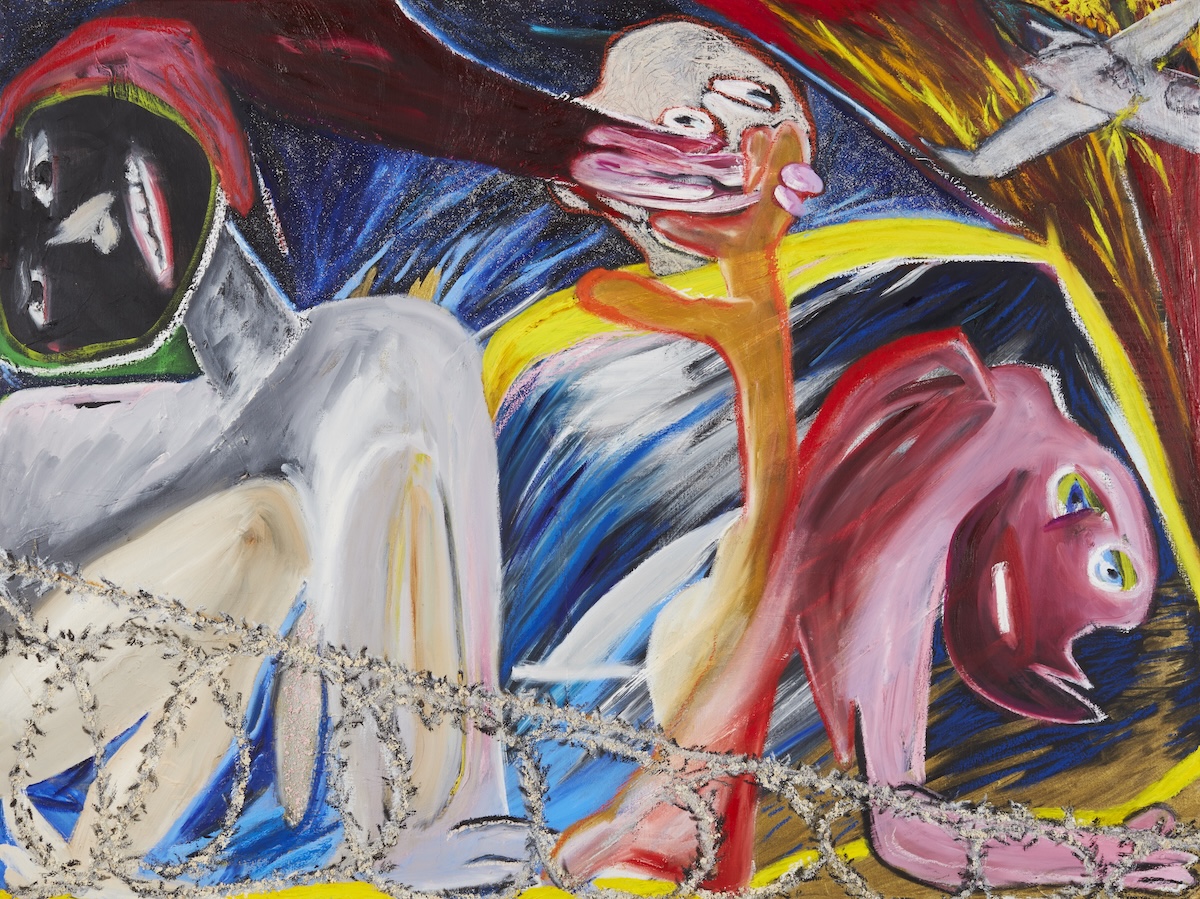
Misunderstandings and Contradictions:
The Art and Life of Jacqueline de Jong (1939-2024)
Presentation by Curator Ariella Wolens, Fort Lauderdale (FL)
September 25, 2024 @ 12:00 pm - 1:00 pm
| FreeIn this virtual talk, curator Ariella Wolens presents the late Dutch artist, Situationist, and Pataphysician Jacqueline de Jong (1939-2024). Born into a Jewish family in Enschede, Netherlands, De Jong’s infancy was spent in exile in Switzerland; she and her mother narrowly escaped deportation to Sobibor after being taken in by the resistance. For the rest of her life, she remained universally empathic, and chose art as her own form of resistance.
Image above: Jacqueline de Jong, Naufrage en Mediterranée (Border Line), 2020. Oil and nepheline gel on canvas, 35 3/8 x 47 1/4 in / 90 x 120 cm. BPS22, Musée d’art de la Province de Hainaut, Belgium. Courtesy the artist’s estate and Ortuzar Projects, New York. © 2024 Jacqueline de Jong estate
De Jong was a central figure within the 1960s avant-garde of Paris, however, she remained a forward-facing figure all her life, fully engaged in contemporary discourse until her last days. She defied categorization, engaging in painting, printmaking, sculpture, graphic design, typography, jewelry and ceaseless experimentation.
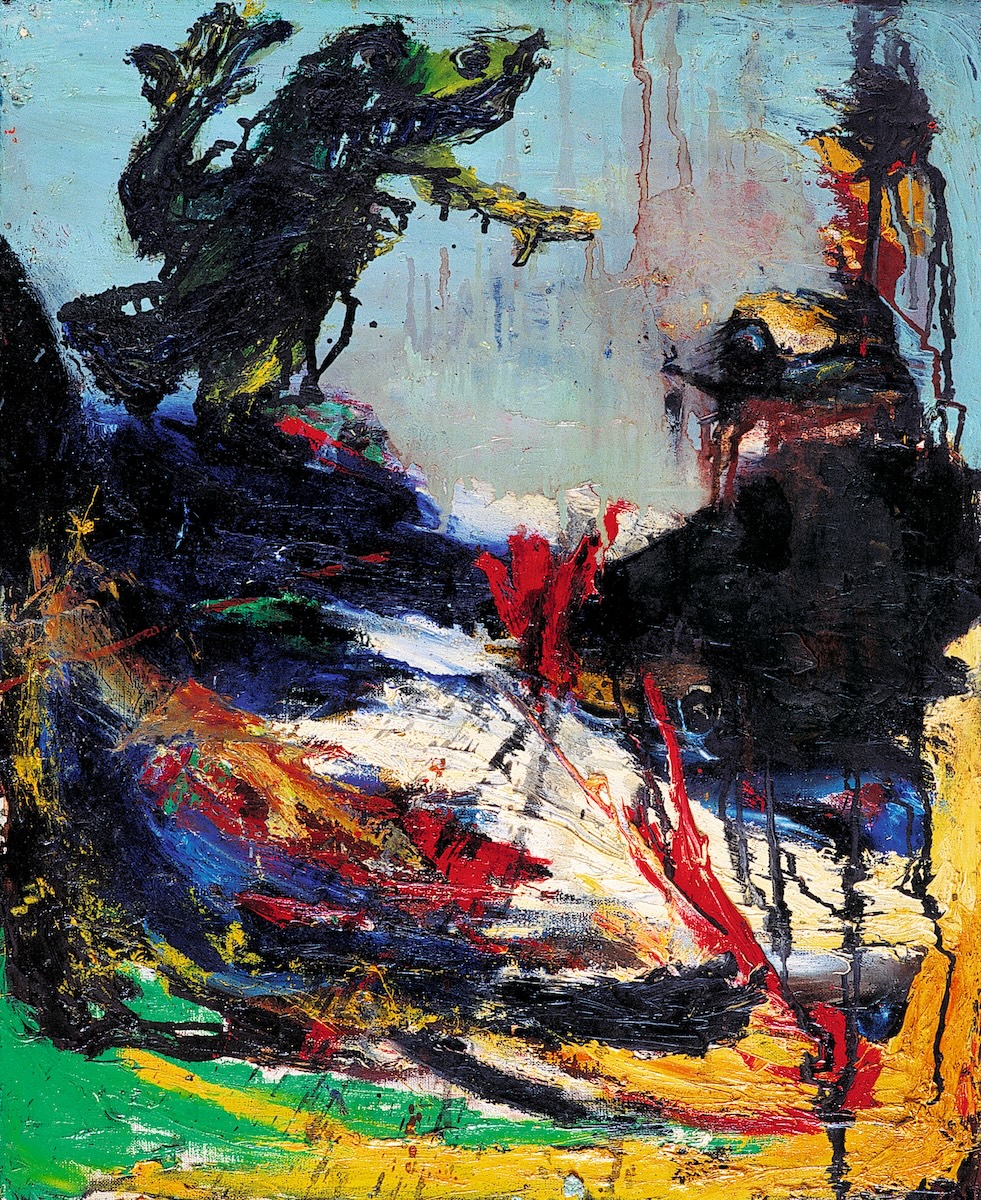
Jacqueline de Jong, Mr. Homme attaque Mr. Mutant, 1962. Oil on canvas, 24 x 19.6 in / 61 x 50 cm. Ambassade Hotel London. Courtesy the artist’s estate and Pippy Houldsworth Gallery, London. © 2024 Jacqueline de Jong estate
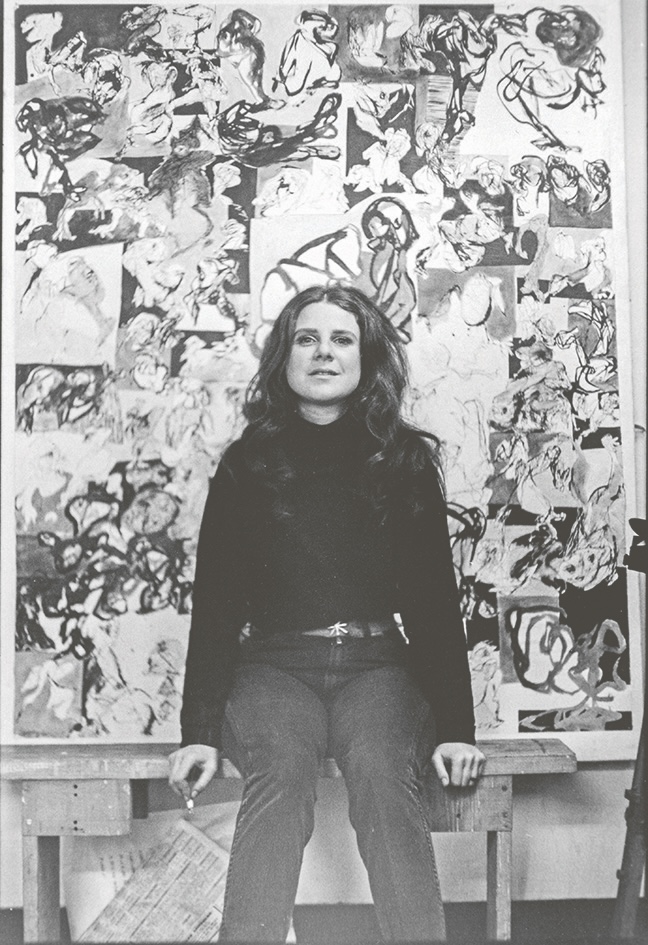
Jacqueline de Jong in front of her TV Drawings at Cité Prost in Paris, 1968. Courtesy of the Jacqueline de Jong estate. © 2024 Jacqueline de Jong estate
De Jong has historically long been recognized for her role as co-founder, editor, publisher and designer of the 1960s artist-led periodical, The Situationist Times—a radical counter-cultural publication that remains a touchstone for independent publishing. Despite this legacy, her formal practice has been long overlooked, and it was only towards the end of her life that cultural critics began to sincerely acknowledge the rich and vital contribution of her oeuvre, one that spanned over sixty years.
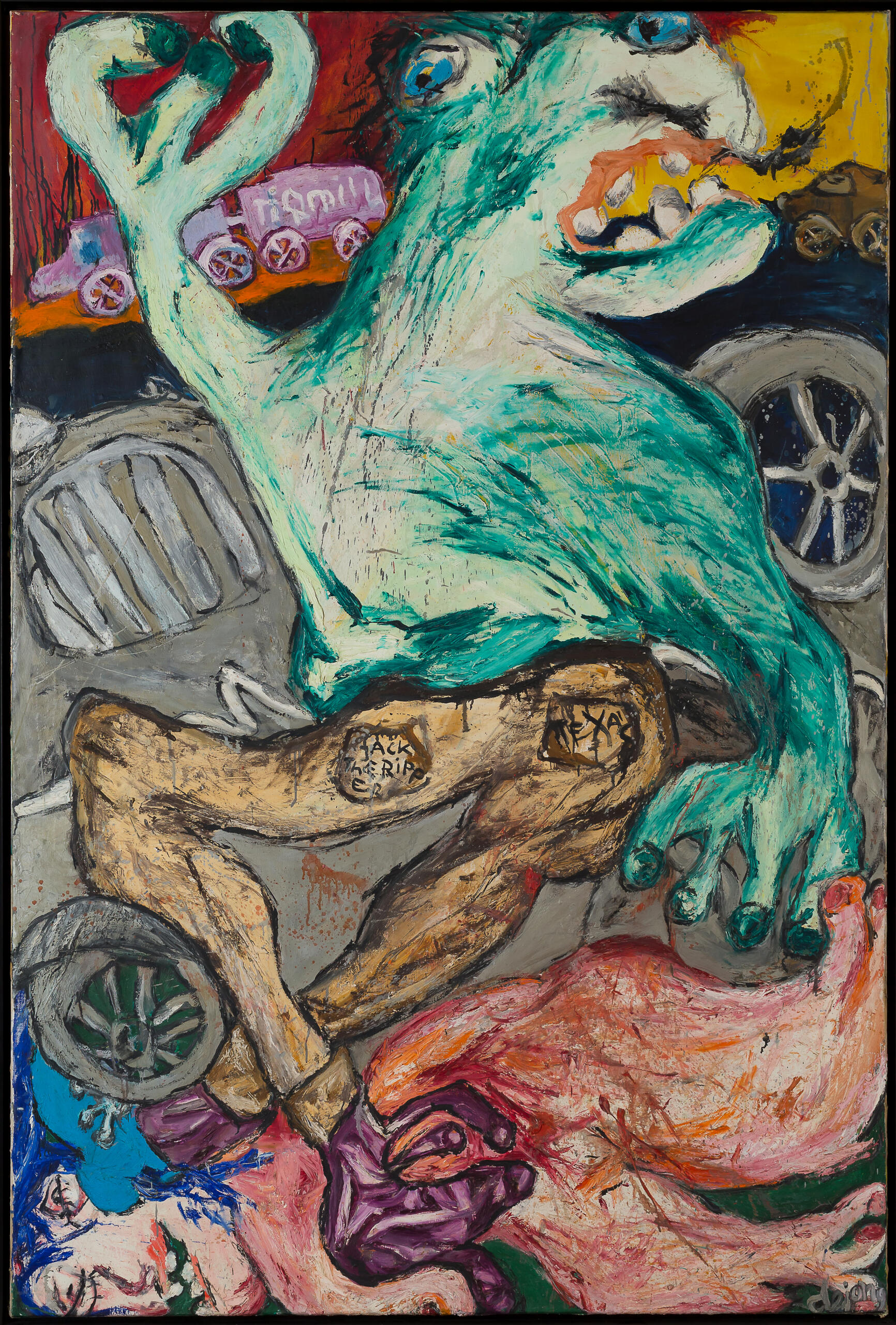
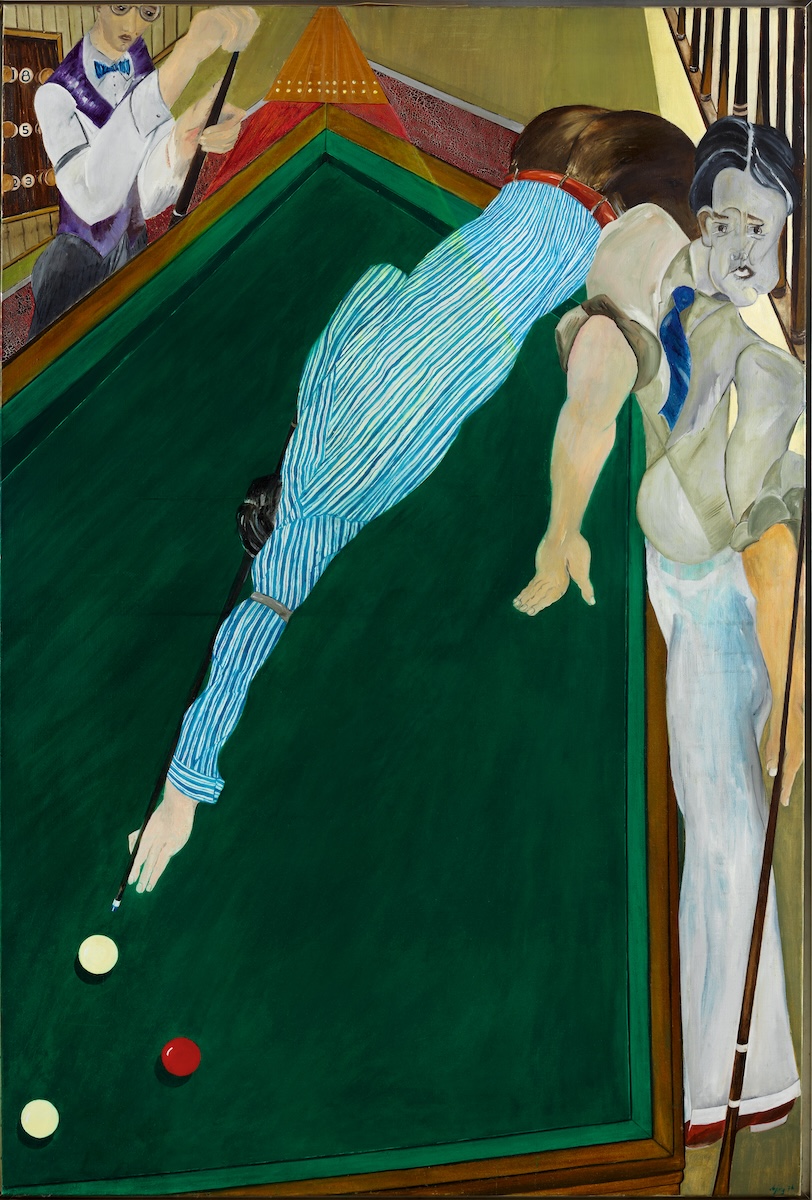
Jacqueline de Jong, Le carambole inspiré par un burin de J. Minne, 1976. Oil on canvas, 76.7 x 51.1 in / 195 x 130 cm. Courtesy the artist’s estate and Pippy Houldsworth Gallery, London. Photo: Gert Jan van Rooij
Misunderstandings and Contradictions will accompany the forthcoming exhibition Jacqueline de Jong: Vicious Circles, the first U.S. museum survey dedicated to this monumental artist. Curated by Ariella Wolens, the exhibition will open at the NSU Art Museum Fort Lauderdale on November 17, 2024. Both events will explore De Jong’s legacy through the recurring theme of conflict, a concept the artist believed to be the foundation of all creative and human activity.
Ariella Wolens is the Bryant Taylor Curator of NSU Art Museum Fort Lauderdale, where she has organized over a dozen exhibitions including, Walasse Ting: Parrot Jungle, Confrontation: Pierre Alechinsky & Keith Haring, and Scott Covert: I Had a Wonderful Life. In November, she will present Jacqueline de Jong: Vicious Circles, the first exhibition dedicated to Jacqueline de Jong to take place at an American institution. Wolens received a master’s from Columbia University, and her undergraduate degree from University College London. She has written for publications such as Art in America, Elephant, Flash Art and Spike Magazine.
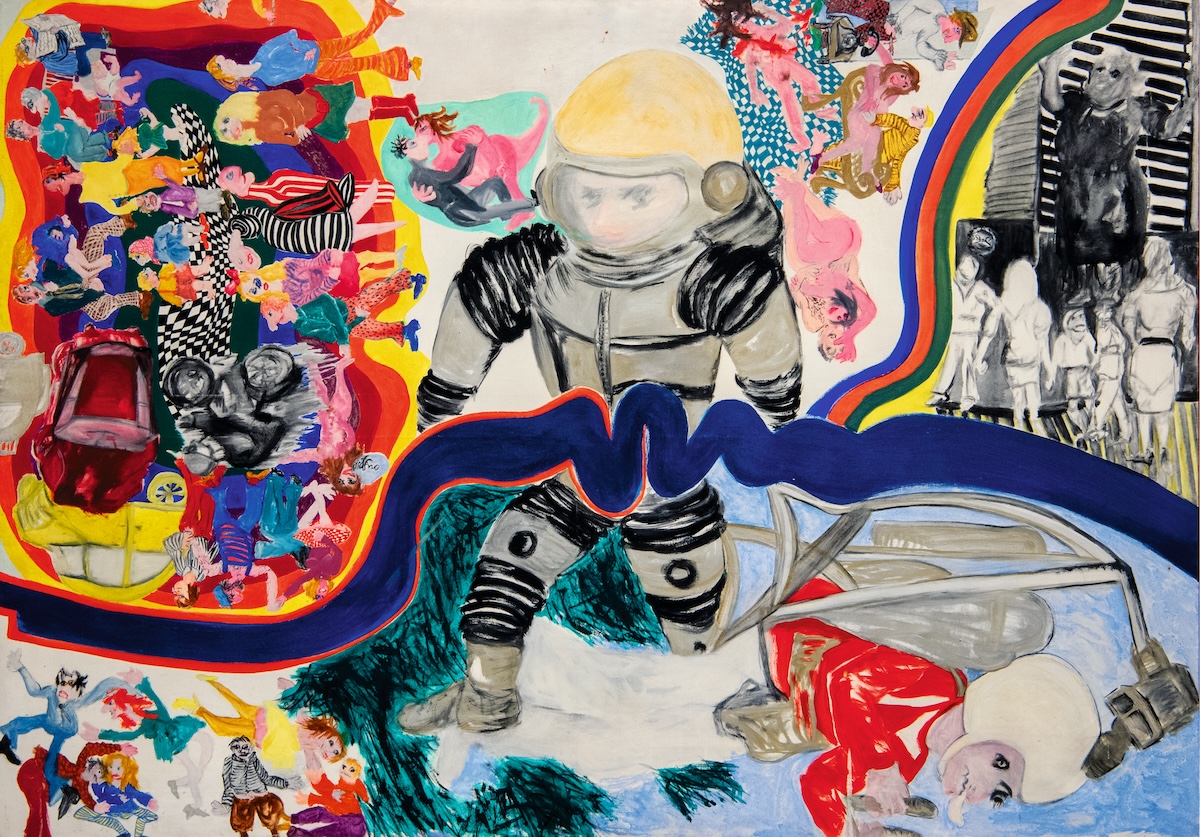
Jacqueline de Jong, Tournevicieux cosmonautique (les âmes les plus confuses se retrouvent un matin conditionnés par un peu de pesanteur), 1966. Acrylic on canvas, 114 x 162 cm. Private Collection, Amsterdam © 2024 Jacqueline de Jong estate
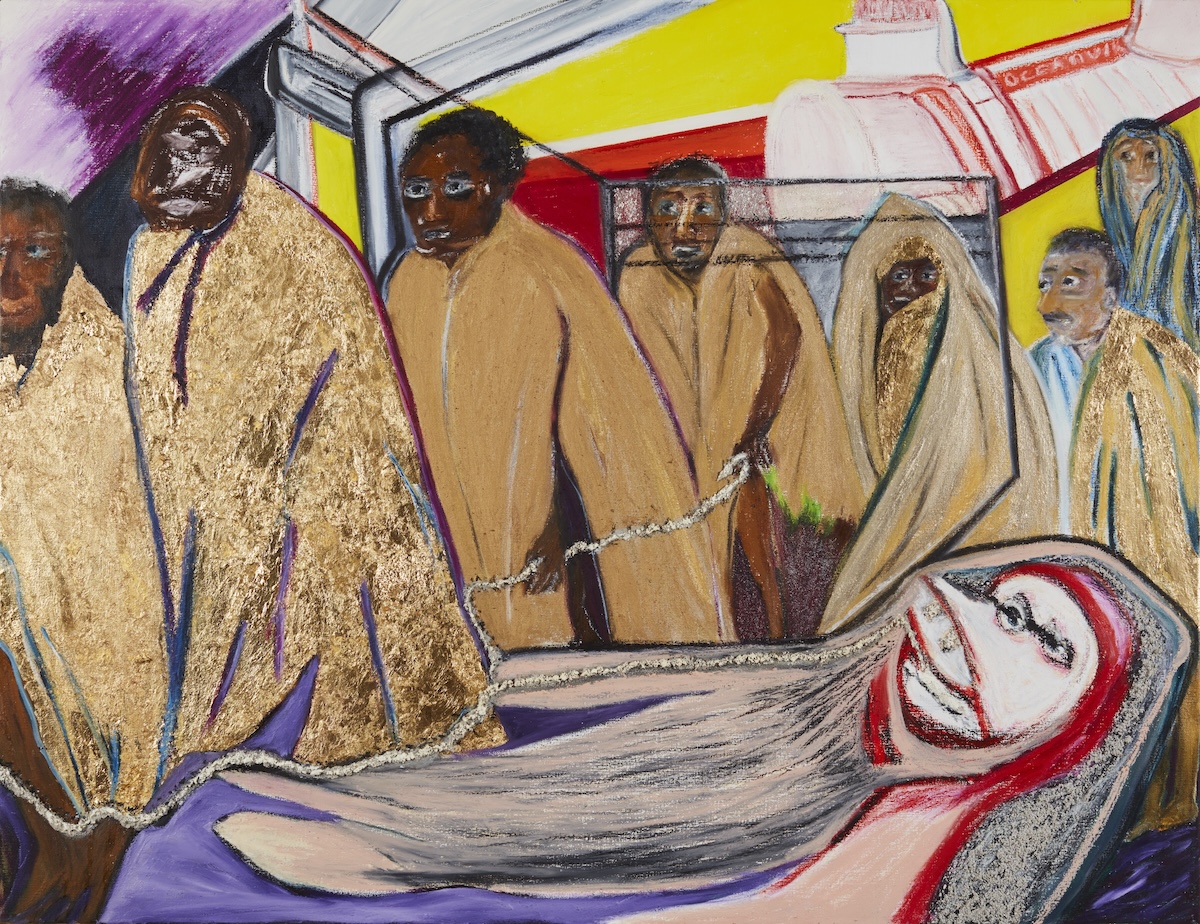
Jacqueline de Jong, Ocean Viking (Border Line), 2021. Oil and nepheline gel and gold leaf on canvas, 35 3/8 x 47 1/4 in / 90 x 120 cm. Private Collection. Courtesy the artist’s estate and Ortuzar Projects, New York © 2024 Jacqueline de Jong estate


